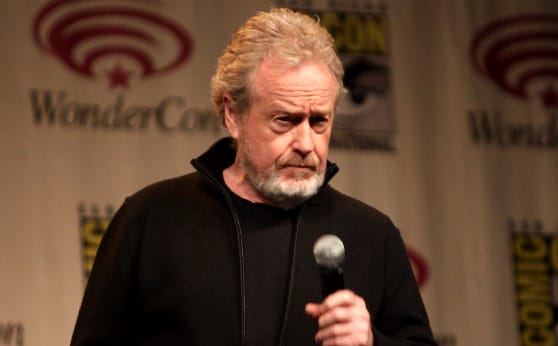Who Directed Gladiator?

Gladiator, the iconic 2000 epic historical drama film, was brought to life under the masterful direction of Ridley Scott. This captivating masterpiece, written by David Franzoni, John Logan, and William Nicholson, takes viewers on a thrilling journey through ancient Rome.
Under the joint production efforts of Douglas Wick, David Franzoni, and Branko Lustig, Gladiator boasts a stellar cast that includes Russell Crowe, Joaquin Phoenix, Connie Nielsen, Oliver Reed, Derek Jacobi, Djimon Hounsou, and Richard Harris.
Released by DreamWorks Pictures in North America and Universal Pictures internationally, the film tells the gripping tale of Maximus Decimus Meridius, a Roman general seeking revenge against Commodus, the treacherous son of Emperor Marcus Aurelius. Commodus seizes the throne after murdering his own father.

With its tumultuous production, Gladiator triumphed both critically and commercially, grossing an impressive $503 million worldwide. It garnered five Academy Awards, including the coveted Best Picture and Best Actor awards for Russell Crowe.
The Genesis of Gladiator (From Book Adaptation to Film Production)
Gladiator, the iconic 2000 epic historical drama film, had its origins in the pages of Daniel P. Mannix’s 1958 book, “Those About to Die” (formerly titled “The Way of the Gladiator”).
This gripping tale captivated the attention of filmmakers, leading to its adaptation for the big screen. DreamWorks Pictures acquired the script, initially penned by David Franzoni, and secured the talent of acclaimed director Ridley Scott to bring the story to life.
Principal photography for Gladiator commenced in January 1999 and concluded in May of the same year. However, the production was not without its challenges.
Issues such as an unfinished script and the unfortunate demise of actor Oliver Reed, who played a pivotal role in the film, created obstacles along the way. Nevertheless, these difficulties did not deter Gladiator from becoming one of the most successful films of the year 2000.
Under Ridley Scott’s masterful direction, Gladiator transformed from a beloved book to a visually stunning and emotionally powerful film that captivated audiences around the world. Its genesis from book adaptation to film production showcases the dedication and talent of the entire creative team involved in bringing this epic story to the silver screen.
Impact and Legacy of Gladiator
Gladiator, since its release in 2000, has had a profound impact on the film industry and has left a lasting legacy. Widely regarded as one of the best films of the 2000s, it has reinvigorated the sword-and-sandal genre that had dwindled in popularity during the 1960s.
The movie sparked a renewed interest in historical epic films, particularly those set in ancient Greece, Rome, and other iconic periods of world history.
With its stunning visuals, gripping story, and powerful performances, Gladiator captivated audiences and critics alike. It shattered box office records, grossing over $503 million worldwide, and went on to win five Academy Awards, including Best Picture and Best Actor for Russell Crowe.
The film’s success paved the way for future historical epics and set a new standard for the genre.
The film’s influence can be seen in the works of other filmmakers, who were inspired to replicate its visual style, tone, and themes. Directors and producers sought to tap into the same level of grandeur and spectacle that Gladiator achieved.
This revitalization of the sword-and-sandal genre introduced a new wave of historical epics to the silver screen, captivating audiences with tales of ancient civilizations and larger-than-life heroes.
Gladiator’s impact extends beyond its commercial success and critical acclaim. The movie resonated with audiences on a deeper level, exploring themes of revenge, violence, masculinity, and stoicism. Its examination of these themes sparked meaningful conversations and made Gladiator more than just an entertaining spectacle. It became a thought-provoking piece of cinema that continues to captivate audiences to this day.
As the years go by, Gladiator’s legacy remains strong. It continues to be celebrated as a cultural landmark and a benchmark for historical epic films. Its impact on the genre is undeniable, and its influence can be felt in the countless films that followed in its footsteps. Gladiator’s revitalization of the sword-and-sandal genre has left a lasting imprint on the film industry and continues to inspire filmmakers to push the boundaries of storytelling and visual grandeur.
Future of Gladiator
In 2021, Ridley Scott, the renowned director behind the original Gladiator film, delighted fans with an exciting announcement. Writing has officially begun on a long-awaited Gladiator sequel, fueling anticipation among moviegoers worldwide. Scott’s decision to continue the story of Maximus Decimus Meridius has generated intense curiosity about the direction the sequel will take.
Eager fans yearning for more epic battles and gripping drama won’t have to wait too long. The Gladiator sequel is scheduled to hit theaters in the US on November 22, 2024. This release date has sparked a buzz of excitement as audiences count down the days until they can reconnect with the intense and captivating world of ancient Rome.
With Ridley Scott at the helm once again, fans can expect the same level of cinematic brilliance that defined the first film. Scott’s visionary approach to storytelling and his ability to immerse viewers in richly detailed historical settings are sure to captivate audiences once more. The anticipation for the sequel is immense, as fans eagerly await the next chapter in the Gladiator universe.
